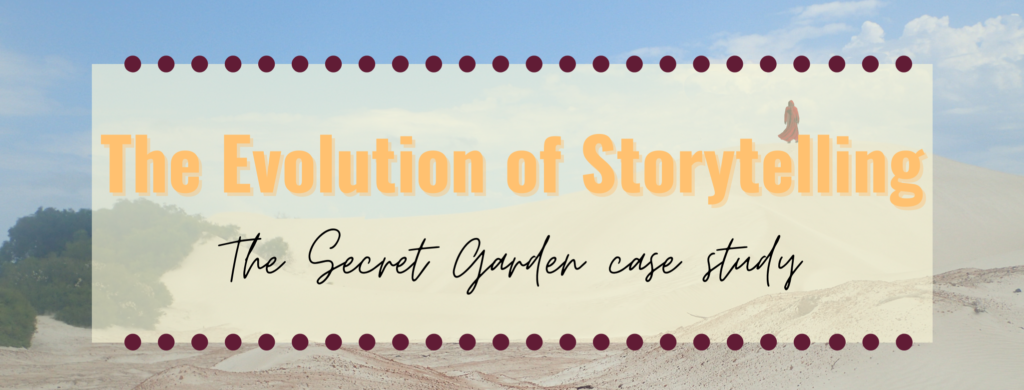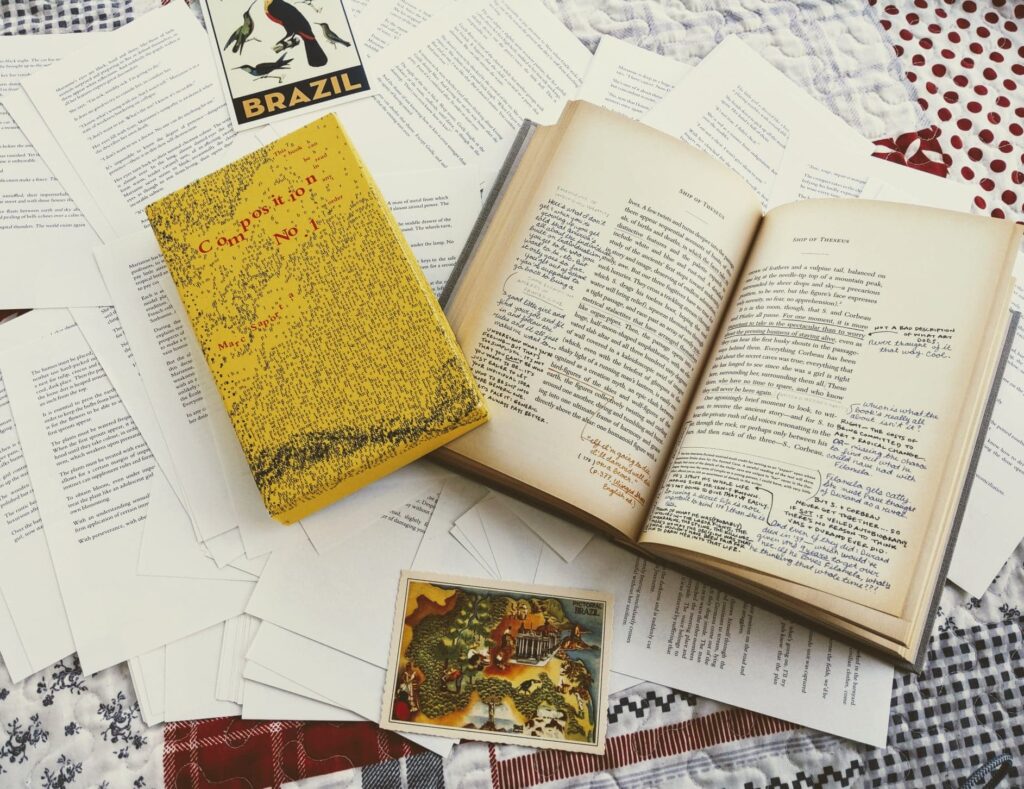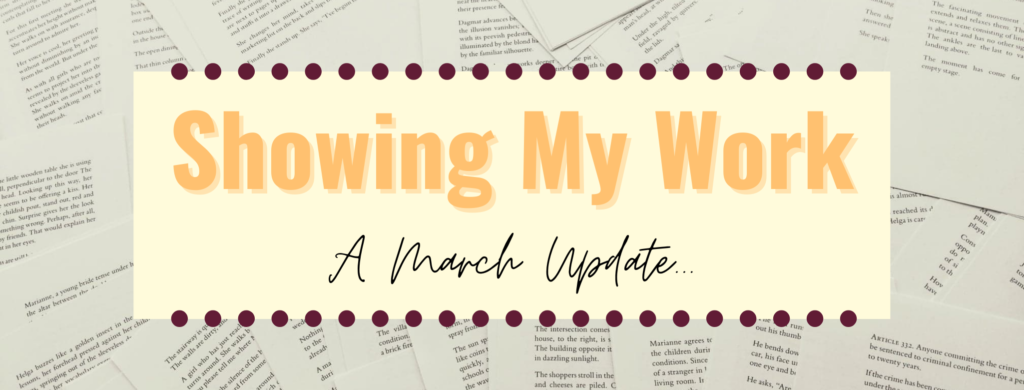The end is near. I’m adding the finishing steps to my thesis. Soon it will be sent off and largely out of my hands until my viva (verbal defence). It feels… odd. Like things are simultaneously moving really quickly and I’m full of frantic energy, but also everything has slowed down including me. But, as I try to think about what it’s going to be like for someone else to read these jumbled thoughts of mine, I’ve also been thinking a lot about how I got here. Or, more specifically, how I ended up with Shifting Sands. A desert-based fantasy with perspective chapters that shift in and out wasn’t my first idea for an unstable e-book, after all. Since I use this blog to show my thought processes as a writer and researcher, here are some of the other ideas I had before coming up with Shifting Sands (new wave out March 17th btw!).
Idea One: R.Evolution
Not gonna lie, R.Evolution was the name I had in my head for this project for the longest time. One of the earliest and strongest ideas I had for the story was a kind of sci-fi-esque war between a few different factions where the narrative would change and update as alliances did. In this, the e-book would be somewhat like Times in Orwell’s 1984, continually rewritten to conform to the ‘current’ version of history, which reflected the themes of authority and truth I was finding in my research at that early stage. I actually still really like this idea and might play with in future, but the scale needed seemed to be a problem. It would work best if I could have a number of elements working at once — the e-book updating to reflect this fictional war, fake news reports showing shifting allegiances, maybe a few Twitterbots running… Too much for this project!
Elements from this idea do remain, however. A lot of the early plot ideas for R.Evolution I had centred around a dream I once had (as is common for my writing process apparently!) where the protagonist was a cyborg whose memories were erased. They were fighting in a desert world on behalf of a usurper king, crushing down rebel forces, but then stumbled upon their childhood home and the memories within. And, if you’ve read Shifting Sands, you’ll know it also takes place in a desert world and contains rebel forces. No usurper king or androids as yet though!
Idea Two: Evolving Folklore
A somewhat vaguer idea was focused on how we tell stories or, more specifically, how our methods of storytelling have changed. I rambled a bit about this when talking about The Secret Garden, but basically I would argue that our ways of telling stories have changed with time and evolving technology. Sure, we can still use the older methods, replicating the styles of oral storytelling, for example, but there are definitely trends in the ways authors from different time periods write, showing these changes. So, could I replicate that in an unstable e-book? Maybe starting with a kind of folklore-inspired story that relies primarily on functions and expected structures, later having the story become more travelogue-esque ala More’s Utopia, and eventually becoming more film-like or even making use of hyperlinks.
This is one of those ideas where I think I was trying to be too clever for my own good. I’d have needed to do a lot of research to work out what needed to happen when and, unfortunately, the research pay-off just didn’t seem enough to be worth it. I would 100% have been doing this structure to satisfy my nerdy side rather than crafting a story that felt accessible to a mainstream audience. I don’t even know what kind of plot I would have gone for here! But still, an interesting if over-ambitious idea.
Idea Three: Exchanging Letters
The final non-Shifting Sands idea I had would probably work better as some kind of ongoing hypertext story, or maybe a book in a box type thing like Composition No1. I had this idea of a chest in someone’s attic, old and forgotten until it’s uncovered by some great-granddaughter. The story would have revolved around letters hidden and then discovered in the chest, flipping between different times in the family’s history, with aspects only becoming relevant as they are read and reread.
Though I obviously abandoned this idea, I feel like it was the one that helped me unlock the idea of multiple character perspectives in Shifting Sands. The letters gave me the idea of individual truths and experiences, where the writer (and perhaps their intended reader) might understand what they refer to, but a reader without context might not know what to pay attention to. I wanted readers to have a similar experience to the great-granddaughter, putting together different threads to try and find the truth in between.
What does this suggest?
It’s interesting to reflect on these different ideas because it highlights some of the threads running through my work: truth and authority. My research has focused on the author performance online, thinking about how authors try to present who they are and manage impressions. But, in this, those threads come through — there’s very little to stop someone deleting past tweets if it doesn’t align with how they want to be seen in the present, for example, but they also can’t stop someone else from remembering and referring to it (bringing up the ‘receipts’). So, while an author can be closer to their readers, acting as a figurehead for their community, truth is subjective and authority is negotiated. Definitely makes the online behaviour of certain authors interesting to watch!



